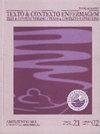造血干细胞移植患者自我管理指南
Q2 Nursing
引用次数: 0
摘要
摘要目的:了解造血干细胞移植受者家庭护理自我管理的意义和需求,并与护理人员探讨这些需求,旨在提出指导意见。方法:基于2020年12月至2021年8月在Juiz de Fora - Minas Gerais造血干细胞移植服务中心开展的会聚护理研究的定性研究,分两个阶段进行:半结构化访谈和小组讨论。17人参与了这项研究:12名移植个体和5名护士。数据分析由Iramuteq软件和聚合护理研究提出的综合和理论化支持。结果:在移植患者进行的第一阶段,出现了六个类别,在四个亚语体中进行了解释,并指出了自我管理的意义和需求。在第二阶段,与护士一起进行,将第一阶段发现的要求提交讨论组进行反思并得到批准。根据研究结果,满足移植患者健康自我管理需求的指南如下:专业监测、坚持治疗、维持规定的护理措施、寻找指南和信息、诊断的影响、恢复免疫力、纳入就业市场、身体限制和日常习惯的改变。结论:提出的指南反映了对个体在造血干细胞移植后阶段适应健康/疾病过程所经历的需求的理解,并表达了实施促进自我管理策略的重要性。本文章由计算机程序翻译,如有差异,请以英文原文为准。
GUIDELINES FOR THE SELF-MANAGEMENT OF PEOPLE SUBJECTED TO HEMATOPOIETIC STEM CELL TRANSPLANTATIONS
ABSTRACT Objective: to know meanings and demands for the self-management of home-based care for Hematopoietic Stem Cell transplant recipients and to discuss these demands with nurses, aiming at proposing guidelines. Method: a qualitative study based on the convergent care research study developed between December 2020 and August 2021 in a Hematopoietic Stem Cell Transplantation Service from Juiz de Fora - Minas Gerais, carried out in two stages: semi-structured interview and small group discussion. 17 people participated in the study: 12 transplanted individuals and five nurses. Data analysis was supported by the Iramuteq software and by the synthesis and theorization proposed by convergent care research. Results: in Stage 1, performed with transplanted patients, six classes emerged that were interpreted in four subcorpuses and pointed out the meanings and demands for self-management. In Stage 2, performed with nurses, the demands found in Stage 1 were submitted to reflection in the discussion group and ratified. Based on the findings, the guidelines to meet the health self-management demands of transplanted people were as follows: professional monitoring, adherence to the treatment, maintenance of the prescribed care measures, search for guidelines and information, implications of the diagnosis, restoration of immunity, inclusion in the job market, physical limitations, and changes in everyday habits. Conclusion: the guidelines proposed reflect the understanding of the needs experienced for an individual to adapt to the health/disease process in the post-Hematopoietic Stem Cell Transplantation phase, and express the importance of carrying out strategies that promote self-management.
求助全文
通过发布文献求助,成功后即可免费获取论文全文。
去求助
来源期刊

Texto Contexto Enfermagem
Nursing-General Nursing
CiteScore
1.80
自引率
0.00%
发文量
85
审稿时长
>12 weeks
期刊介绍:
Texto & Contexto Enfermagem provides space for reflection and deepening of knowledge about issues of practice, teaching and research in health and nursing, at national and international levels.
The journal is published quarterly in the rolling pass or Continuous flow mode, accepting manuscripts in Portuguese, English or Spanish, in the categories original article, reflection, experience report and review. Contributions designated to the dissemination of unpublished original research results are prioritized for publication. Special issues are published at the discretion of the Board of Directors and Associate Editors. All manuscripts are published in two versions, one of which is English, aiming to cover the largest number of readers worldwide.
The editorial policy of Texto & Contexto Enfermagem is based on rigorous quality criteria for indexing and publishing (including technical and normative aspects, graphic and textual quality and excellence in scientific content); on responsibility for shared management between the Board of Directors, Editorial Board and Internal and External Editors Associates; and on the rigorous and constructive peer review, preserving the anonymity of authors and reviewers (double blinded).
 求助内容:
求助内容: 应助结果提醒方式:
应助结果提醒方式:


